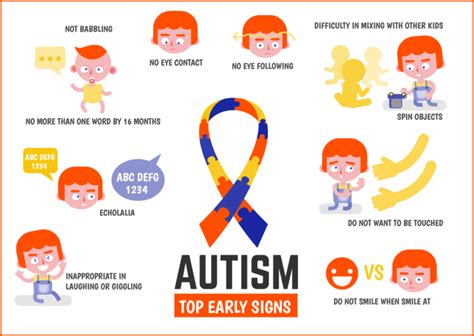How To Know If You Have Autism: A Guide to Understanding the Signs
Autism Spectrum Disorder (ASD) is a complex neurodevelopmental condition affecting how individuals communicate, interact socially, and behave. Recognizing the signs of autism can be challenging, as it manifests differently in each person. This guide will help you understand potential indicators and emphasize the importance of professional diagnosis.
Understanding the Autism Spectrum
It's crucial to remember that autism exists on a spectrum. This means that symptoms and their severity vary widely. Someone might have mild social difficulties, while another might face significant challenges in communication and daily routines. There's no single "look" or behavior pattern that defines autism.
Key Characteristics of Autism:
Social Communication and Interaction:
- Difficulty with social reciprocity: Struggling to engage in back-and-forth conversations, understanding nonverbal cues (like body language and facial expressions), or sharing emotions.
- Challenges with nonverbal communication: Limited or unusual use of gestures, facial expressions, or eye contact.
- Difficulties developing, maintaining, and understanding relationships: Struggling to form friendships, understanding social rules, or interpreting social situations.
Restricted, Repetitive Patterns of Behavior, Interests, or Activities:
- Insistence on sameness: Strong need for routines, rituals, and predictability. Changes can cause significant distress.
- Highly restricted, fixated interests: Intense focus on specific topics or objects, often to the exclusion of other interests.
- Repetitive motor movements, use of objects, or speech: Repeating actions (like hand flapping), lining up toys, or echolalia (repeating words or phrases).
- Sensory sensitivities: Over- or under-sensitivity to sights, sounds, textures, tastes, or smells.
Recognizing the Signs in Different Age Groups
Children:
- Delayed language development: Late talking, difficulty with communication, or unusual language patterns.
- Limited or unusual social interactions: Avoiding eye contact, preferring solitary play, or showing little interest in others.
- Repetitive behaviors: Repeating actions, lining up toys, or engaging in repetitive play.
- Unusual responses to sensory input: Being overly sensitive to noise or touch, or showing unusual fascination with certain sensory experiences.
Adults:
Adult autism may present differently. While some individuals may have been diagnosed in childhood, others may only recognize the signs later in life. Common indicators include:
- Social isolation or difficulty maintaining relationships: Struggling to understand social cues, leading to feelings of loneliness or exclusion.
- Difficulties with communication: Misinterpreting communication or struggling to express themselves effectively.
- Struggling with change or unexpected situations: A strong preference for routine and predictability.
- Unusual or intense interests: Deeply focused on specific topics.
- Sensory sensitivities: Continuing challenges with sensory overload or under-stimulation.
When to Seek Professional Help
If you are concerned about yourself or a loved one, seeking a professional diagnosis is crucial. A comprehensive evaluation by a qualified professional (such as a psychiatrist, psychologist, or neuropsychologist) is the only way to confirm an autism diagnosis. They will conduct thorough assessments, including interviews, observations, and standardized tests, to determine whether an autism diagnosis is appropriate. Early diagnosis can greatly benefit individuals and families, allowing for access to appropriate support and interventions.
Beyond Diagnosis: Support and Resources
Remember, a diagnosis is just one step. Many resources are available to support individuals with autism and their families. These resources can help with:
- Therapy: Behavioral therapy, speech therapy, and occupational therapy are common interventions.
- Educational support: Specialized educational programs can cater to the individual's specific needs.
- Community support groups: Connecting with others who understand can be incredibly valuable.
This information is for educational purposes only and should not be considered a substitute for professional medical advice. If you suspect you or someone you know may have autism, please consult a qualified healthcare professional for proper evaluation and guidance.
